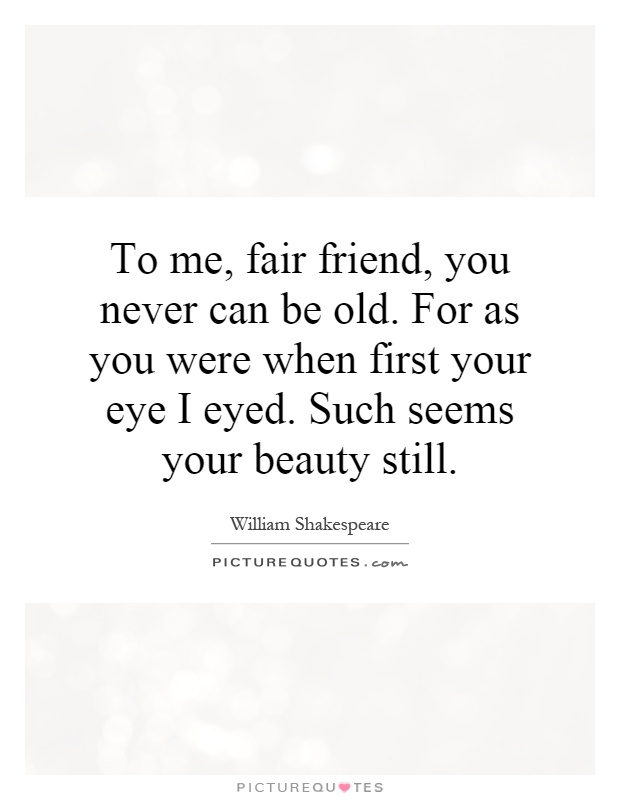To me, fair friend, you never can be old. For as you were when first your eye I eyed. Such seems your beauty still

To me, fair friend, you never can be old. For as you were when first your eye I eyed. Such seems your beauty still
The lines "To me, fair friend, you never can be old. For as you were when first your eye I eyed. Such seems your beauty still" are from Sonnet 104 by William Shakespeare. In this sonnet, the speaker is expressing their admiration and love for their friend, insisting that despite the passage of time, their beauty remains unchanged.Shakespeare often wrote about the passage of time and the effects it has on love and beauty. In this sonnet, he explores the idea that true beauty is timeless and eternal. The speaker is telling their friend that no matter how many years pass, they will always see them as young and beautiful. This sentiment reflects the idea that love transcends physical appearance and is based on a deeper connection between two people.
The use of the word "fair" in the opening line is significant, as it not only refers to physical beauty but also to the friend's inner qualities. The speaker is not just praising their friend's looks, but also their character and personality. This adds depth to the poem and shows that the speaker's love is based on more than just superficial qualities.
The phrase "For as you were when first your eye I eyed" suggests that the speaker's love for their friend has remained constant since they first met. It implies that their connection is strong and enduring, despite the passage of time. This idea of eternal love is a common theme in Shakespeare's sonnets, as he often explores the idea of love that transcends the limitations of mortality.
Overall, Sonnet 104 is a beautiful expression of love and admiration. The speaker's words convey a sense of timelessness and eternal beauty, capturing the essence of true love that remains unchanged by the passing years. Shakespeare's skillful use of language and imagery makes this sonnet a timeless and enduring piece of literature.












 Friendship Quotes
Friendship Quotes Love Quotes
Love Quotes Life Quotes
Life Quotes Funny Quotes
Funny Quotes Motivational Quotes
Motivational Quotes Inspirational Quotes
Inspirational Quotes